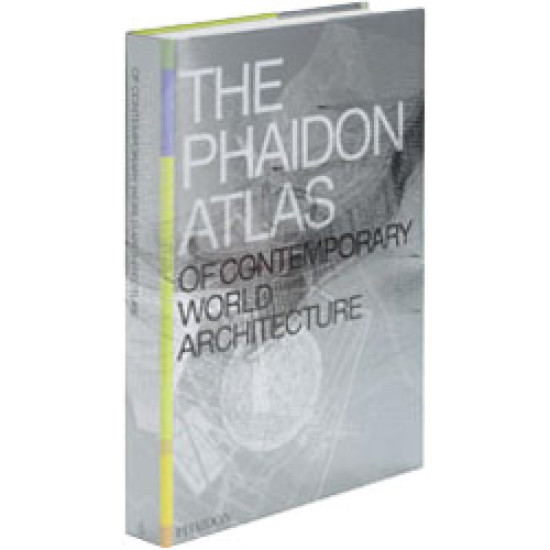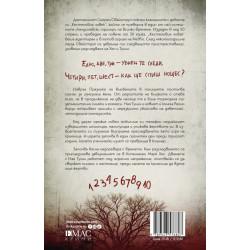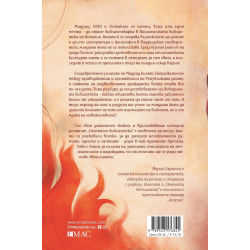



The Phaidon Atlas of Contemporary World Architecture
- Налично онлайн
3.92 (1332 ratings by Goodreads)
254.00 лв. (129.87 €)
От същия бранд
The Phaidon Atlas of Contemporary World Architecture presents a comprehensive global survey of the most outstanding works of contemporary architecture from around the world to be completed in the last five years.
Organized geographically and illustrated with global, regional and sub-regional maps locating each individual building, this monumental tome illustrates more than 1,000 completed buildings and includes some of the most influential projects worldwide as well as many lesser-known buildings.
Sections on World Data, Building Data and Architect's Biographies paint a detailed picture of the influences on contemporary architecture today. Every building type is covered - from the largest publicly-funded art museums and airports to private houses - and each project is illustrated with colour photographs, line drawings and an analytical text.
Eminent architectural critics, curators, journalists and practitioners from all parts of the globe nominate what they consider to be the most outstanding works of contemporary architecture in their regions and beyond. The resulting 1,050 buildings confirm the far-reaching influence of well-known and respected international practitioners such as Jean Nouvel, Tadao Ando, Renzo Piano, Sir Norman Foster, Rem Koolhaas and Herzog & De Meuron, as well as introducing a host of lesser-known architects whose work provides an illuminating point of comparison with their famous counterparts.
This magnificent book provides a unique opportunity to examine contemporary architecture as an evolving global phenomenon with all the cross-cultural influences this suggests, while illustrating the powerful diversity that is generated by climate (from the Arctic circle to the African deserts), culture (from the technologically advanced secularism of western Europe to traditional rural communities) and economics (from the wealthy post-industrial mega-economies to some of the most economically challenged countries of the developing world).
The colossal volume is divided into six geographical regions with meticulous maps in each section, providing geographical orientation and an understanding of where contemporary architecture is being commissioned, designed and built. Its composition, scale, range and depth are truly unprecedented. The Phaidon Atlas of Contemporary World Architecture is essential reading for all those interested in gaining a true understanding of where the best contemporary architecture is located in the world.
Organized geographically and illustrated with global, regional and sub-regional maps locating each individual building, this monumental tome illustrates more than 1,000 completed buildings and includes some of the most influential projects worldwide as well as many lesser-known buildings.
Sections on World Data, Building Data and Architect's Biographies paint a detailed picture of the influences on contemporary architecture today. Every building type is covered - from the largest publicly-funded art museums and airports to private houses - and each project is illustrated with colour photographs, line drawings and an analytical text.
Eminent architectural critics, curators, journalists and practitioners from all parts of the globe nominate what they consider to be the most outstanding works of contemporary architecture in their regions and beyond. The resulting 1,050 buildings confirm the far-reaching influence of well-known and respected international practitioners such as Jean Nouvel, Tadao Ando, Renzo Piano, Sir Norman Foster, Rem Koolhaas and Herzog & De Meuron, as well as introducing a host of lesser-known architects whose work provides an illuminating point of comparison with their famous counterparts.
This magnificent book provides a unique opportunity to examine contemporary architecture as an evolving global phenomenon with all the cross-cultural influences this suggests, while illustrating the powerful diversity that is generated by climate (from the Arctic circle to the African deserts), culture (from the technologically advanced secularism of western Europe to traditional rural communities) and economics (from the wealthy post-industrial mega-economies to some of the most economically challenged countries of the developing world).
The colossal volume is divided into six geographical regions with meticulous maps in each section, providing geographical orientation and an understanding of where contemporary architecture is being commissioned, designed and built. Its composition, scale, range and depth are truly unprecedented. The Phaidon Atlas of Contemporary World Architecture is essential reading for all those interested in gaining a true understanding of where the best contemporary architecture is located in the world.
































